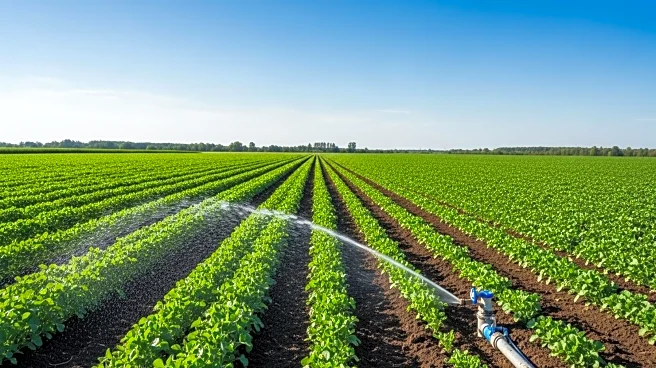What's Happening?
New research indicates that modern agricultural methods are compromising the resilience of global soils, posing a risk to food security. Intensive practices such as plowing, fertilizer application, and irrigation degrade soil quality, reducing its ability to recover from environmental stresses. Soils support 95% of global food production and store significant carbon, making their decline a major environmental concern. The study highlights erosion, salinization, pollution, and compaction as key threats to soil stability. While some practices can maintain resilience, most solutions require balancing short-term productivity with long-term sustainability.
Why It's Important?
The degradation of soil resilience has far-reaching implications for global food security and environmental stability. As soils become less capable of coping with stress, agricultural systems face increased vulnerability to disruptions, potentially leading to irreversible productivity collapse. This could affect food and trade networks, threatening global stability. The findings underscore the need for sustainable land management practices that prioritize long-term resilience over immediate yields. Addressing soil degradation is crucial for ensuring food security, supporting biodiversity, and mitigating climate change impacts.
What's Next?
The research calls for a reevaluation of land management practices to prioritize soil resilience. Implementing sustainable practices such as conservation tillage and integrated pest management can help slow or reverse soil degradation. Policymakers and agricultural stakeholders must consider the trade-offs between productivity and sustainability to prevent tipping points in farming systems. Global cooperation and investment in sustainable agriculture are essential to address the challenges posed by soil degradation and ensure food security for future generations.
Beyond the Headlines
The study highlights the ethical and environmental dimensions of modern agriculture, emphasizing the need for a shift towards practices that support long-term resilience. The degradation of soils not only threatens food security but also impacts biodiversity and climate stability. Sustainable land management practices can contribute to a more resilient agricultural system, reducing dependency on imports and empowering farmers. The findings call for a holistic approach to agriculture that considers environmental, social, and economic factors.











